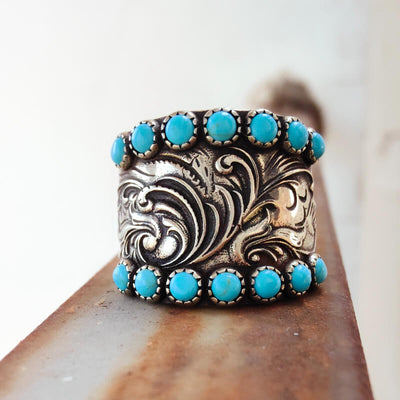Unlock the Timeless Charm: Discover the Secrets of Vintage Wide Band Engagement Rings!
In recent years, vintage wide band engagement rings have surged in popularity, captivating couples with their unique charm and rich history. These rings not only symbolize love and commitment but also serve as a testament to the exquisite craftsmanship of bygone eras. The allure of vintage styles lies in their ability to tell a story—each piece carries the essence of its time, making it a perfect choice for those who value individuality and heritage. In this article, we'll delve into the fascinating design history of vintage wide band engagement rings and provide essential tips on how to choose the perfect one for your engagement.

The Allure of Vintage Wide Band Engagement Rings
Vintage wide band engagement rings possess a distinct charm that sets them apart from their contemporary counterparts. The appeal of these rings lies in their unique designs, which often feature intricate details and ornate embellishments that reflect the artistic styles of their respective eras. Unlike modern rings, which may prioritize minimalism and sleek aesthetics, vintage rings are often rich in character and personality. Many couples are drawn to these pieces as they embody a sense of nostalgia and timeless elegance—qualities that resonate deeply when making a lifelong commitment. Additionally, the wide band design offers both comfort and a bold statement, making it a favorite among those looking for a distinctive piece that captures attention.
Design History of Vintage Wide Band Engagement Rings
The history of engagement rings is as diverse as the cultures that have adorned them. Wide band styles gained prominence during several key design movements, each influencing how couples expressed their love through jewelry. The Art Deco period of the 1920s and 30s, for instance, showcased bold geometric patterns and lavish use of materials, resulting in rings that were both striking and luxurious. Similarly, the Victorian era introduced romantic motifs and intricate designs, often incorporating floral elements and colorful gemstones. As we move through the decades, the evolution of wide band engagement rings reflects changing societal values and artistic trends, making them a fascinating subject of study. Each era contributed to the development of unique styles, ensuring that vintage rings remain relevant and cherished in today's world.
Key Design Features
When examining vintage wide band engagement rings, certain hallmark characteristics stand out. These rings are typically crafted from high-quality materials such as gold, platinum, or silver, often adorned with exquisite gemstones like diamonds, sapphires, or emeralds. The settings may vary, with some featuring prong settings that showcase the stone prominently while others may employ bezel settings for a more understated look. The craftsmanship is another crucial aspect; many vintage rings exhibit meticulous attention to detail, with hand-engraved patterns or filigree work that adds to their uniqueness. These features not only enhance the aesthetic appeal but also contribute to the overall vintage allure, making each ring a true work of art.
How to Choose a Vintage Wide Band Engagement Ring
Selecting the perfect vintage wide band engagement ring requires thoughtful consideration. Start by identifying your personal style—do you gravitate towards ornate designs or simpler, more understated looks? Understanding your aesthetic preferences will help narrow down your options. Additionally, pay attention to ring size; vintage rings may not always conform to modern sizing, so be prepared to have the ring resized if necessary. It's also crucial to seek certification from reputable sources, ensuring that the ring's materials and gemstones are genuine and of high quality. Lastly, consider the story behind the ring; whether it’s a piece handed down through generations or a vintage find from an antique shop, the history attached to the ring can add significant sentimental value.
Common Mistakes to Avoid
While the journey of purchasing a vintage wide band engagement ring can be exciting, it's essential to avoid common pitfalls. One frequent mistake is neglecting to verify the authenticity of the ring; always ask for certificates and documentation when available. Another misstep is disregarding the importance of comfort; ensure that the ring fits well and feels comfortable on your finger, especially since wide bands can feel bulkier than traditional styles. Additionally, be aware of the potential for wear and tear; examine the ring carefully for any signs of damage or needed repairs. By being mindful of these factors, you can ensure a satisfying and rewarding purchase.
Embracing the Charm of Vintage Engagement Rings
Vintage wide band engagement rings offer a timeless charm that resonates deeply with those seeking a unique symbol of love. Through exploring their rich design history and understanding how to choose the perfect ring, couples can appreciate not only the beauty of these pieces but also the stories they hold. As you embark on your journey to find a vintage ring, remember to seek out designs that speak to your personal narrative, allowing the ring to become a cherished part of your love story. Whether you opt for a breathtaking Art Deco piece or a delicate Victorian design, the perfect vintage wide band engagement ring awaits to be discovered.







